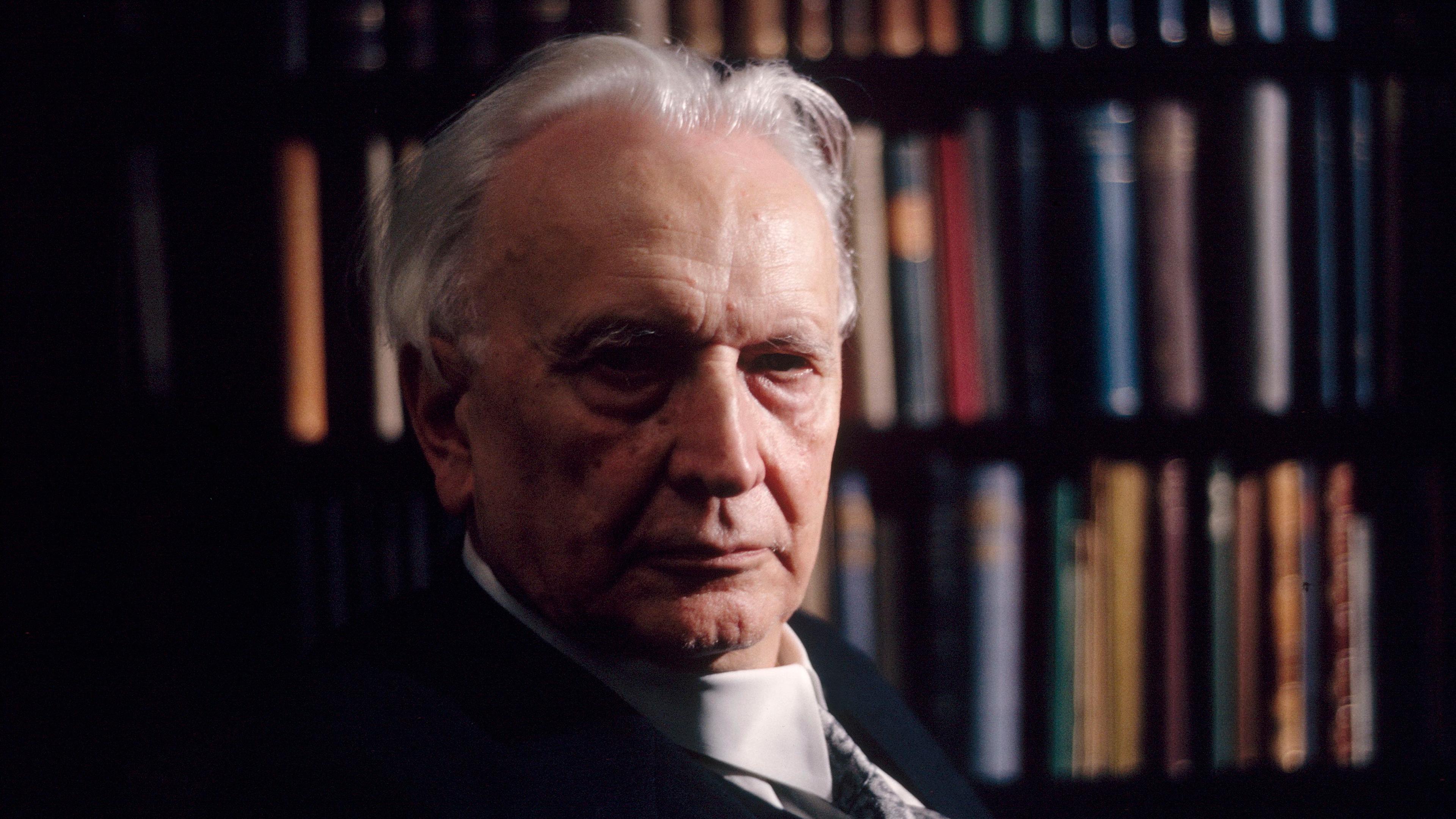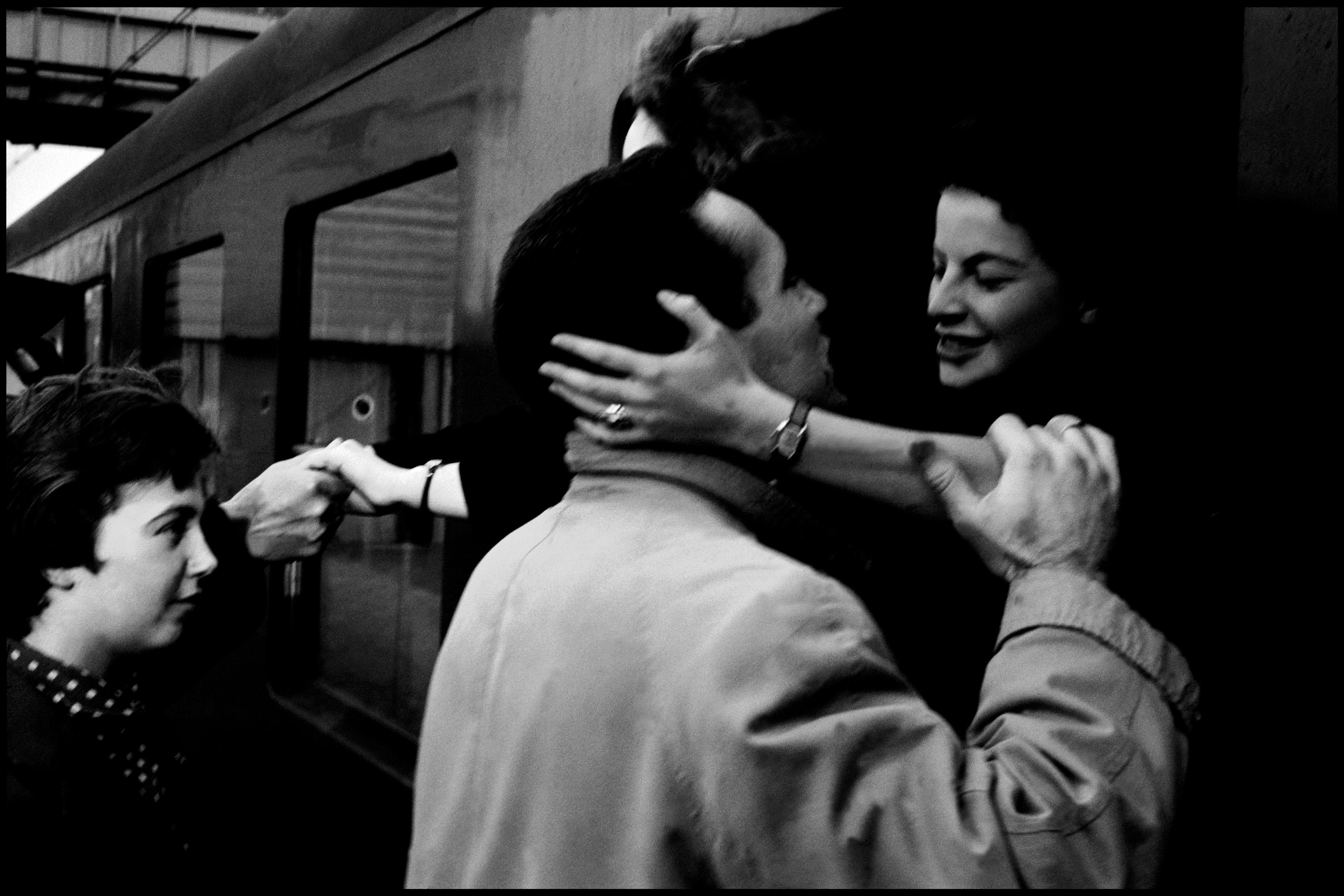Karl Jaspers (1883-1969) was a respectable and venerated man whose presence could fill a room with an aura of erudition and sagacity. This impression of strength, however, masked poor health. Jaspers suffered from a severe form of bronchiectasis, a disabling and incurable lung disease. As a teenager in Germany, doctors had given him only a few more years to live. His health problems had compelled him to set aside ambitions for the practical life of a psychiatrist in favour of a philosophical life of the scholar. It was also one of the reasons why, when the Second World War ended and the Allied Forces asked Jaspers to serve as minister of culture, he had to decline. Instead, he dedicated his energy to writing a lecture, The Question of German Guilt (1946), at the newly reopened Heidelberg University, that would become a model of how Germans confronted the past.
Jaspers’s struggle and his attraction to psychiatry are key to understand the unique existential philosophy that he developed, an existentialism that connects abstract questions to the most concrete experiences of human life. It was this experiential background that informed Jaspers’s philosophical preoccupation with uncertainty and with Socrates’s statement that he knows only that he doesn’t know. The boy who was once given a few years to survive managed to live until the age of 86. In his lifetime, he produced an astonishing amount of work that revolves around the meaning of uncertainty in an increasingly precarious and radicalising world.
Well-known and acclaimed throughout his life, since his death Jaspers has somewhat fallen into oblivion. His highbrow and slightly quaint appearance, his liberal commitments and lack of scandal have turned his trailblazing and ingenious friend Martin Heidegger into a more attractive alternative. These days, Jaspers is frequently remembered more for his writings on other thinkers than for his own work; or people focus on his pedagogic role in postwar Germany where he encouraged his fellow citizens to come to terms with the past and develop a sense of constitutional patriotism firmly anchored within Europe and the history of a plural world. Even if we take to heart Hannah Arendt’s praise of Jaspers as ‘the only successor … Kant has ever had’, we are missing an important part of Jaspers’s philosophy.
Jaspers is one of the very few existentialist thinkers who did not seek to master, tame or conquer the unknowable and finite condition of human life. Instead, he tried to cultivate a relationship to this essential quality of life and engage it on its own terms. He repeatedly insisted that ‘I do not accomplish my freedom. I did not make myself. I do not exist by my own means.’ Rather, I depend on the freedom of others and the complex makings of a fragile world. Only because our lives are contingent and vulnerable can we experience love, freedom and purpose as something meaningful. The attempt to prove love or catch the ephemeral presence of beauty would likely take away the experience. Already in his Psychology of Worldviews (1919), Jaspers argued that it is ‘precisely this uncertainty of all contents which, for us finite beings, defines the only way to spiritedness, intellectuality and vitality.’ While order and stability are necessary for human existence, they alone would turn us into machine-like puppets. What we come to understand in moments of happiness, loss and tragedy is that we cannot possess meaning, we cannot own who we authentically are or determine our identity. Uncertainty was not something to overcome for Jaspers. He rather considered it the ground of ideas such as freedom, truth and justice that can be defined only negatively, through what they are not, or not yet.
His concept of ‘limit situations’ illustrates this reversal of perspective. Jaspers argued that limit situations expose the uncertainty that undergirds and shapes human existence. He was convinced that people can’t live without conflict and suffering. They also must die. And since it is impossible not to act, they can’t avoid guilt either. Now, there are different ways to deal with these universal limit situations. We can avoid or deny them. We can also find a response in the form of scientific explanations, social norms, rituals and habits. Eventually, however, we realise that they never change, except in appearance; he wrote: ‘They are like a wall we run into, a wall on which we founder.’ Alternatively, we can develop a consciousness of this failure – what Jaspers called ‘limit consciousness’ or knowledge of nonknowledge. This knowledge might seem paradoxical, but it is essential to our lives and deeply familiar. We might plan to go to the movies, buy tickets and invite friends, but whether we have moments of excitement and joy cannot be planned.
Put more concretely, if we were to think of sleeplessness as an example of a limit situation, we could identify responses on different levels of (un)certainty. We can relate to sleeplessness as a pathology and treat it with sleeping pills, sleep hygiene, meditation or therapy. We might experience, however, that sleep doesn’t return or that our condition worsens. This could partly be related to the nature of sleep itself. Although we sleep an enormous amount of time in our lives, we ultimately don’t know why, nor what happens during this time. This knowledge of what we fail to know can become essential in relating to sleeplessness. We then come to understand that the more we orient our life around sleep, the less we feel in charge. Forcing sleep can backfire because it resists force. Eventually, this knowledge can enable us to let go and allow sleep to come on its own terms as a gift rather than a means in order to function. In grasping sleep indirectly, we can become more creative, curious and open to change. Jaspers never questioned the value of science and he would have certainly not denied the importance of psychotherapy or sleep hygiene. Yet, in limit situations, science can do good only if guided by the knowledge not to know rather than the idea of a problem that needs immediate fixing.
For similar reasons, Jaspers vehemently criticised psychoanalysis. He worried that it turns the unconscious self into a ‘pseudo-scientific’ object that can no longer acknowledge the unknowable dimension of life. Science, here, serves as a replacement of religion and ideology, and seeks to provide a sense of comfort that can easily fabricate a self-absorbed cocoon with little emancipatory potential. Following his mentor and friend Max Weber, Jaspers insisted that science can, guided by a consciousness of fallibilism, produce universal knowledge and possibly shatter earlier beliefs, but it cannot produce meaning on its own. Facts need to be interpreted through the lens of values and beliefs in order to shape reality and people’s commitments. Opposing the post-truth propaganda of the Nazi regime and the Cold War, Jaspers likewise cautioned against the reverse effect: that science is turned into ideology or denied completely. While facts are always political, scientific structures nonetheless resist politicisation. Jaspers and Weber both argued that there remains an irreducible tension between science and politics that neither side can solve.
Yet while Weber predicted an ideologically fractured and disenchanted world, Jaspers translated this pessimism into a sense of tragedy that affirms the force of reason and justice in history. ‘Truth is what really unites us,’ he wrote. Unlike pragmatic or liberal models of inclusion, however, this idea of truth doesn’t advocate for an overlapping consensus of different worldviews. While laudable, the well-intentioned efforts of interfaith dialogue remain driven by the certainty of values that can easily oppose change and convert into the use and abuse of power. Neither would Jaspers suggest the possibility of a political revolution for fear of violence and terror – the ultimate outcome of the rage for certainty. Instead, he proposed a truth that ‘finds the one in what is relative’. The choice of the word ‘relative’ indicates not only that the ambiguous is closer to the truth but that knowledge becomes relational as it reflects truth.
But how should it be possible to think this relational truth and uncertainty together? Jaspers believed that we might not be able to come to an agreement about who we are and what we want to be, but we can agree on what we don’t know and how we’d like to act toward this nonknowledge. There is containment in the expression of uncertainty. It generates a humble, but highly resistant and communicative approach to the world. ‘All thoughts,’ Jaspers therefore concluded, ‘could be judged by this touchstone question, do they aid or hinder communication.’ When we turn to Jaspers today, the question is more than ever how our societies and political institutions can communicate the uncertainty of human life to ensure its survival.








